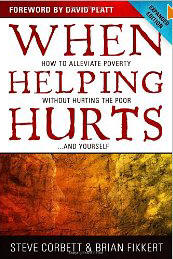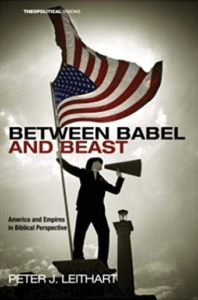
by Peter J. Leithart
This book grows in relevance as our nation declines spiritually, morally, and politically. It is difficult for an American Christian like myself to objectively view his or her country. We may not agree with the author’s points and conclusions, but followers of Christ must seriously consider America’s place as a world empire from a biblical perspective. We must also ponder that nearly every great empire throughout history has somehow managed to co-opt religion to its benefit. I hope you read this with an open mind and a repentant heart. I imagine it will be as difficult for you as it is for me to contemplate that we are a very flawed nation that is perhaps on the verge of catastrophe.
Part One: Empires in Scripture
Chapter One: A Tale of Two Imperialisms
The first chapter examines God’s resistance to man’s attempt to construct a nascent imperial empire at Babel. In opposition to Babel, God introduced his own plan for world order through Abraham.
God’s reign in Zion, not the city-and-tower of Babel, is the center of international order and the hope for global peace… Gentiles formed the boundary of Israel’s land, and as such they were incorporated as the frontier of Yahweh’s empire that had Zion at its capital… and this implied that the Gentile would eventually share in their redemption as light and life spread from Zion to the frontier, from Jew to Greek. (p.11)
Yahweh’s imperial program ran as a tangent to the history of Babel. Yahweh confronted Babel, but instead of sending a chosen army of holy warriors to plunder the great city, He founded His empire by calling Abram away from empire. (p.12)
All this was in preparation for uniting the nations to confess, with one lip, one great Name. (p.14)
…the Gospel of the kingdom is… the gospel of God’s imperium. (p.52)
Chapter Two: Rod, Refuge, Messiah, Beast
This chapter shows how…
The struggle of the Old Testament is not empire versus non-empire, but between rival imperialisms, rival visions for the political salvation of a human race divided linguistically, culturally, and religiously in the wake of the rebellion at Babel. This is why empire is always a seduction for Abraham’s children. For Israel, looking at Babel is like looking in the mirror. (p.33)
Babylon was renewed Babel, associated with the original program of imperial rebellion, false eschatology, sacrifice, and tyranny. (p.19)
When God sent his people into captivity in Babylon, he initiated a new phase of his plan for Israel.
More importantly, by resisting at crucial moments, Daniel and his friends broke the uniformity of Neo-Babelic worship and created fissures in the homogeneous political structure of Neo-Babel. Shemites who once cooperated in building Babel staked out a space of independence… Yahweh scattered citizens of his empire among the nations for a reason, not just to teach Israel a lesson, but to begin forming a martyr-people whose faithful resistance would remake Gentile empire. (p.22)
Leithart defines what it means for an empire to become “beastly.”
The Bible condemns violence, but bloodthirsty injustice is not, in itself, enough to make an empire a beast. Empires turn bestial when they begin to eat the people of God and drink their blood. (p.33)
Babelic empires are founded on the blood of innocents. Bestial empires are founded on the blood of the saints. (p.53)
The Good News of Empire
Jesus heralded the kingdom or empire of God.
Every time Jesus spoke of Himself as “Son of Man,” He claimed to be the heir of imperial authority, the Emperor who fulfills God’s original anti-Babel imperial promise to Abraham. (p.37)
Leithart claims that God inverted Babel when the Holy Spirit fell on Pentecost.
The pneumatic church became God’s renewed imperium. The Spirit-filled church became the new Zion, the mountain from which Israel’s God rules, from which he reaches out to the Romans and barbarians. It is anti-Babel at nearly every point: many tongues, not one; scattering, not gathering; built on the blood of a willing victim; Jew and Gentile united in God’s work, not in opposition to Him. Yet the ecclesial imperium is at certain points a mirror image of Babel. All tribes, tongues, nations, and peoples confess with one lip that there is one Lord, Jesus. Jesus sends his Spirit to enliven the church as a multilingual, multi-ethnic, multinational empire. (p.38)
The church operates by vastly different ways from Babel type empires.
The fulfilled Israel of the church, by contrast, was founded by the victim not the victimizer. It was a city founded by crucified and risen Abel rather than Cain… The church’s sacrificial practice imitated that of Jesus, as willing martyr-victims mixed their blood with His. Renewal came through violence suffered, not violence enacted. (p.40)
Revelation envisions the delivery of the kingdoms of the world to the victors who overcome by faithful witness to death, the victors who follow Jesus-Victor to victory. (p.50)
Beast and harlot are cleared away to make room for the Bride. Kings and empires are no longer chosen to shelter the church. Instead, the church as the fifth empire keeps its doors open day and night so that kings from across the sea will be able to enter and pay homage to the Son who reigns from Zion. (p.51)
Part Two: Americanism
Chapter Four: Heretic Nation
American is a new kind of human being… The American was a long time coming. Conceived by Luther, gestated by Calvin, he was born of the Puritan parents who begat America. It took thee labors to bring finally to birth – the English Civil War, from which American Puritans escaped, the American Revolution, and the American Civil War. From these emerged a new character type distinguished by a boundlessly optimistic sense of possibility and inventiveness, an extraordinary willingness to try, fail, and try again that has been the astonishment and envy of the world. He is generous, always ready to help. He is sentimental; even American warriors have a soft side. The American is fiercely independent; don’t tread on him, because he won’t be pushed around. He is willing to extend the same independence to others, to live and let live. The American has a dark side; He is utterly confident of the rightness of his every cause, infatuated with violence, insatiably hungry for novelty, not greedy for stuff so much as greedy for new stuff. He assumes that if the world were rightly ordered, it would look like global America and is bewildered by people who resist this utopia. Like most people, the American’s virtues and vices are sometimes hard to distinguish. (pp.57-58)
Christianity played a big part in shaping America because…
…it put forward a new and powerful ideal of community which called men to a life of meaningful participation… the church was an unprecedented social and political form, and it burst the bonds of all prior political categories. (p.59)
The early Puritan settlers conceived of themselves as representatives of God who established the colony…
“to serve the kingdom of God and advance the purposes of the gospel.” (p.67)
…for the Puritan colonists, America was not “just another plot of ground in a fallen world.” Rather, “The new World, like Canaan of old, belonged wholly to God. (p.68)
America was chosen to be the bearer of freedom and also of Christianity, and distinguishing the two was no longer easy to do. (p.74)
Over time, America’s mission changed from the earlier Puritan mission to advance the kingdom of God to the new mission of advancing American ideals.
…America is an inherently globalizing, universal nation. It cannot remain to itself and be itself… It is difficult to see how this is anything more than a sacralization of national interest: America exists to promote Americanism. (p.75)
The Civil War created a nation by a massive effusion of blood…The North offered this massive sacrifice to realize a vision of America’s future. “The contest on the part of the North is now undisguisedly for empire,” wrote a British journal in 1862. (p.79)
Lincoln…speculated that God might want the war to continue until every drop of slave blood is atoned for by the blood of a Union or Confederate solder…In general the war’s terrors and injustices were valorized by reference to Americanist typology and eschatology: mine eyes have seen to glory of the coming of the Lord…not to make men holy, but to make men free. (p.79)
The Revolutionary War had never shaped a coherent sense of the nation as a prevailing object of fealty, over against local communities and regions…Out of the carnage [of the Civil War] a national religion was born, a fresh commitment to the Union that Americans would defend to the death.
The church did not have enough critical distance from this Americanism to speak to it. Some traditional preachers did not address politics at all with the effect of leaving…
“the laity without a moral compass or guide… (p.80)
Sacrifice American style can only go on and on. For in Americanism, this fourth great biblical religion, there is no final sacrifice, no end to bloodshed, until we have rid the world of evil, until the Amer can creed becomes the creed of humanity. (p.81)
Chapter Five: Chanting the New Empire
This chapter compiles quotes from significant early leaders that show that empire was on their minds.
America’s Founding Fathers were not anti-empire. Quite frequently, they stated the opposite. Washington described America in 1783 as a “rising empire,” and later predicted that the “infant empire” that was born from the Revolutionary War would one day have “some weight in the scale of Empires.” In Hamilton’s opinion, expressed in Federalist #1, America was “the most interesting” empire in the world, and in Federalist #11 he looked ahead to “a great American system, superior to the control of all trans-Atlantic force of influence, and able to to dictate the terms of connection between the Old and New World.” (p.86)
Thomas Jefferson describe our nation as an “Empire of Liberty.” American foreign policy could be called “imperial anti-colonialism.” (p.87) George Washington wrote:
If we remain one people under an efficient government, the period is not far off when we may defy material injury from external annoyance; when we may take such an attitude as will cause the neutrality we may at any time resolve upon to be scrupulously respected; when belligerent nations, under the impossibility of making acquisitions upon us, will not lightly hazard us provocation; when we may choose peace or war, as our interest, guided by our justice, shall counsel. (p.96)
In short, “during the period of American innocence and isolation,’ the United States had forces stationed on or near every major continent in the world; its navy was active in virtually every ocean, its troops saw combat on virtually every continent, and its foreign relations were in a permanent state of crisis and turmoil.” (p.97)
Congress maintained only a small navy whose peacetime mission was to police the world, enforcing Western standards of behavior, protecting U.S. commerce, and serving as a general adjunct to U.S. diplomacy… In short, naval captains were doing more or less the same job performed today by the World Trade Organization: integrating the world around the principle of free trade. Freelance imperialism has been a recurring feature of American history. (p.103)
American expansion gained momentum as our nation adopted the belief in its “Manifest Destiny” to acquire all the land from the Atlantic Ocean to the Pacific by force of arms or otherwise. The author concludes this chapter:
In early American entanglements around the world, we acted neither more of less foolishly or wickedly than other nations have. Our treatment of the American Indians remains a dark blot on our history… Our problem is not so much the history itself as the mythology or ideology of Americanism that blinds us to the real force of our history. The heresy of Americanism is a shield that allows us to act like Babel while convincing ourselves that we are fulfilling a divine mission on behalf of the human race. Such blindness became more dangerous as America assumed its preminsnt place in the world. (p.109)
Part Three: Between Babel and Beast
Chapter 6: American Babel
The author asserts that in the 20th and 21st centuries the United States remained “nearly as religious as they ever were,” and her sense of purpose “remained as thoroughly infused by American eschatology as it had been in 1620 or 1789 or 1840, though her international actions had become more overtly imperial.” (p.115)
Commerce had expanded everywhere, so that American interests were global, and it should be U.S. policy to protect and promote commerce. (p.116)
The new world order requires a world police, and we should pay our share of the costs of watching the global neighborhood. (p.117)
I would argue that we assumed a lot more than our fair share. John Foster Dulles, Secretary of State under President Eisenhower, believed that…
“peace and civilization would only survive if the United States…exercised dominance over the globe.” (p.120)
“American policy must establish, ensure, and maintain, the dominance of America.” (p.121)
This is a Babelic stance. America conceived of herself as the
“indispensable nation” whose “job is to change the world, and in its own image.” (Condoleeza Rice, p.122)
“We believe everyone should be like us, and we believe that everyone wants to be. And we take steps to help them become like us, sometimes whether they want to or not.” (p.123)
Like Babel, we claim to guarantee international order, but often spread confusion. (p.125)
Americanist ideology gives sacred cover to our pursuit of national interest. (p.125)
He concludes:
When we violently impose our will on the world, we are acting against the better angels of our nature. But we are not betraying our true selves. We are being as Americanist as apple pie. (p.135)
Chapter 7: Among Beasts
This is for me the most sobering chapter, especially in light of increasing Antisemitism and anti-Christian rhetoric by citizens and government leaders. The author states:
America is not a beast, but Americanism could adapt itself to bestial ideology. Though we are not a beast, we enjoy the company of beasts; we send them money, train their soldiers, and have even permitted beasts to write constitutions that leave them free to be beasts. (p.137)
This, of course, relates to our bedfellow relationship with some Islamic nations that hinges upon our strategic and economic interests. The author concludes:
For much of the last century, the United States has forged alliances with repressive despots. During the Cold War, we thought we needed the brutes to stave off the Red Menace. Now, as we wage the war of terror, we say we need friendly beasts to help us deal with the less friendly ones… Realism of this type is not only foolish, but it puts us on the path of great evil…We fund our favorite beasts, then turn a blind eye when they devour the saints. It is a dangerous position, not only for the Christians who suffer at the hands of our allies, but also for the United States. Those who consort with beasts might become bestial, and beasts do not long survive. (p.150)
Conclusion
The author states that “as far as Christians are concerned, the only appropriate response is to repent of being Americanists.” (p.151) He suggests removing the American flag from our podiums and beginning to preach the imperium of the church rather than the U.S.
Throughout Scripture, the only power that can overcome the seemingly invincible omnipotence of a Babel or a Beast is the power of martyrdom, the power of witness to King Jesus to the point of loss and death. American Christianity has not done a good job of producing martyrs, and that is because we have done such an outstanding job of nurturing Americanists who regret that they have only one life to give for their country. (p.152)
Shall America devolve into a beastly nation before our Lord’s Second Coming? We are definitely trending that way. I love my country, but it is important for us to realize that as Christians we can only give conditional allegiance to everything besides Jesus. He is the only one who deserves our unconditional loyalty.
Dear brothers and sisters, pattern your lives after mine, and learn from those who follow our example. 18 For I have told you often before, and I say it again with tears in my eyes, that there are many whose conduct shows they are really enemies of the cross of Christ. 19 They are headed for destruction. Their god is their appetite, they brag about shameful things, and they think only about this life here on earth. 20 But we are citizens of heaven, where the Lord Jesus Christ lives. And we are eagerly waiting for him to return as our Savior. 21 He will take our weak mortal bodies and change them into glorious bodies like his own, using the same power with which he will bring everything under his control. Philippians 3:17-21 (NLT)
Prayer
Jesus, we acknowledge that you alone are Lord and that the nations are a drop in the bucket in your eyes. We believe that your hand has been upon our nation for good in many ways, but we also acknowledge that we have been far, far from perfect. Lord, do not let our love for our country blind us to her faults. Neither let us become anti-American. Lord, we pray for our nation and its leaders. Help us to be a force for good in the world. Forgive us for the many times we have pursued our national self-interest above your principles. Keep us from becoming a beastly nation. As your followers, help us to reserve unconditional loyalty for you alone. If necessary, help us to resist anyone and anything that would try to break that loyalty and allegiance. Jesus, you alone are Lord. Amen.

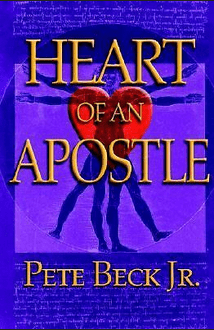
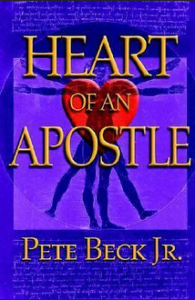
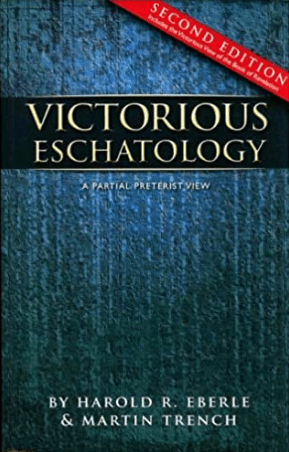

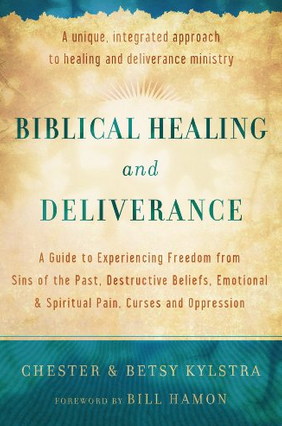
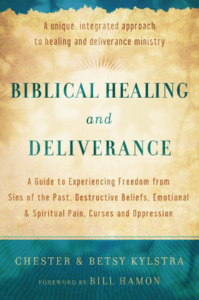
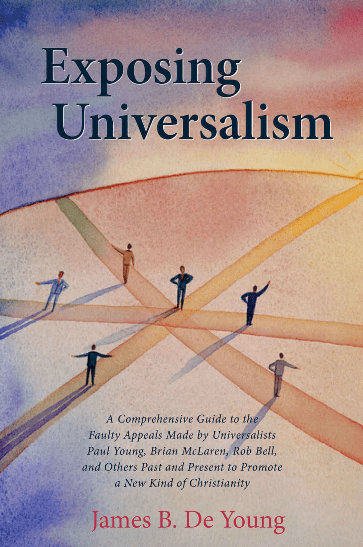




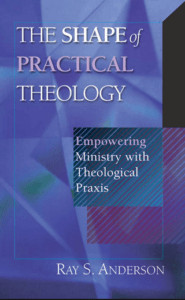


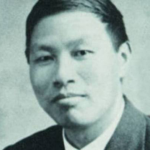 For those of you not familiar with Watchman Nee, his real name was Nee Shu-tsu, whose English name was Henry Nee. He was born of second-generation Christian parents in Foochow, China in 1903. At the age of 17 he gave his life to Jesus, forever altering his plans. He was well-educated and had great aspirations in life, but he realized that becoming a Christian meant surrendering everything to God. He had previously considered Christian work to be a low occupation that was beneath him. He spent the rest of his life preaching, teaching, and writing. In 1952 he was falsely accused and imprisoned by the Communists. He died in a work camp in 1972. A prison guard found a scrap of paper in his cell after his death on which was written:
For those of you not familiar with Watchman Nee, his real name was Nee Shu-tsu, whose English name was Henry Nee. He was born of second-generation Christian parents in Foochow, China in 1903. At the age of 17 he gave his life to Jesus, forever altering his plans. He was well-educated and had great aspirations in life, but he realized that becoming a Christian meant surrendering everything to God. He had previously considered Christian work to be a low occupation that was beneath him. He spent the rest of his life preaching, teaching, and writing. In 1952 he was falsely accused and imprisoned by the Communists. He died in a work camp in 1972. A prison guard found a scrap of paper in his cell after his death on which was written:


